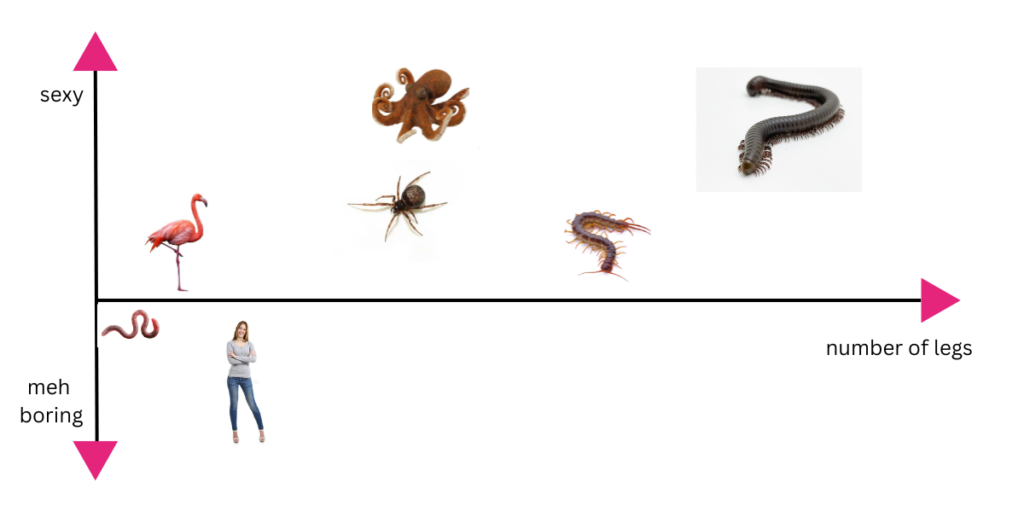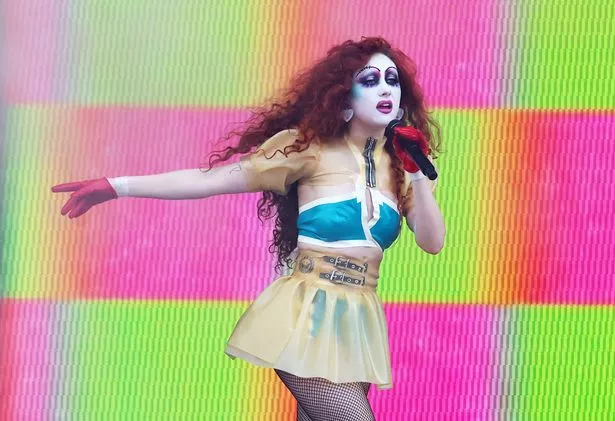Plus: why Chappell Roan matters more than you think.

I’m so excited to be an Associate Artist on the QUEER NATURES research programme! My project is called UNSEXY BEASTS and I’ll be experimenting with different pole dancing ugly animals to ask questions like:
• Why do certain bodies get labelled “desirable” or “undesirable?”
• What does that tell us about queer desire, patriarchy and capitalism?
• How many legs for pole dancing is too many / not enough legs?
Please see some initial findings:

This is an Arts & Humanities Research Council funded project led by Dr. Ina Linge at Exeter University who does super cool research on sexuality and nature, gender politics and the environment. Me and Ina have worked together before on a project called The Politics of Sexual Nature where we ran online queer comedy cabaret events MC’d by gay penguins, an extinct tortoise or, at one point, the moon.
Essentially, we roped in all our unemployed artist friends over lockdown to make Very Serious Academics sing along with gay frogs on Zoom.
QUEER NATURES will be running for about a year and I’ll be mixing solo pole dancing animal experiments with group workshops. So if you’re with me on Instagram already, stay tuned for pole dancing creatures that will be arousing, confusing, upsetting or possibly* all three (*hopefully.)
TAKE ME TO THE CHAPPELL
Apart from the privilege to make more Weird Animal Art, one reason I’m so stoked about QUEER NATURES is that the emphasis is on process, not just results. Charlie George and S.K. Marley, the other two affiliated artists, are both incredibly innovative and creative practitioners when it comes to the sustainability and resilience of making art: thinking about not just what you do, but how you do it, and who that includes or excludes.
It’s good timing because this year I’ve had to think very seriously about the sustainability of a creative career. I’m in a precarious industry which loves to repackage your own exploitation and sell it back to you as noble, determined entrepreneurship until you just get tired out or priced out. I’m older and wiser now so I’m more mindful of what is and isn’t worth my time; me and Alice Fraser were interviewed in The Telegraph last week about why fewer women are represented on the UK club comedy circuit (spoiler: it’s mainly the bad pay, unaffordable travel and creepy men); and as always, I’m trying to funnel the safe, supportive vibes and better financial transparency from pole dancing world into comedy land.

Because reaching global mega pop stardom is very much the same as me pole dancing around the kitchen in flippers, I’ve been really bolstered by the non-negotiable boundaries Chappell Roan has publicly set around her career and her fans, and the message that sends about how we value female artists. The grim stalking, harassment and physical ambushing that Chappell Roan has had to endure is particularly pronounced because she’s a female artist in a deeply misogynist culture, which carries an unmanageable level of entitlement to women’s bodies, attention, energy and time. Her resistance is really empowering as a blueprint for women existing more happily and sustainably not just in music, but in the world.
Especially for a performer whose carefully curated aesthetics are such an integral part of her act, I’m sure Chappell is disproportionately affected by a gender distinction John Berger talks about in Ways of Seeing: that women are perceived and valued for how they are, not what they do. It’s absurd to apply this to an artist like Chappell Roan whose act could not be more intentionally made: she performs in drag, she uses a stage name, she’s very clearly presenting a character with a mythos thoughtfully built around her. The intense para-social environment of social media demands to get closer to the “real” person behind the act, but what she demands is that the world engages with her skilled artistry, then fucks off to leave her alone. Rather than simply grit her teeth and endure it, she’s changing the landscape and working conditions of female creatives by resisting and demanding better.
This, as well as categorically refusing a brand partnership with H&M because the company doesn’t match her values, is really exciting as a wave of unapologetically politicised artists who take the mental health toll and sustainability of their careers seriously. I love this for her, I love this for us!
Thanks for reading! If you’re enjoying this blog you can get longer versions and become a monthly supporter on Patreon or leave a one-off tip by buying me a Ko-Fi.